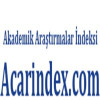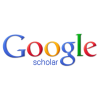Research Article
Review Article
Issue Reviewers

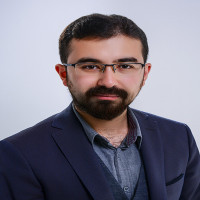
Vurgun was born in Simav district of Kütahya province in 1987. He completed his education at Osmanbey Primary School and Simav Cumhuriyet High School. He graduated from Selçuk University, Department of History Teaching in 2010. In 2014, he received his master's degree with his thesis titled "The Understanding and Teaching of National History in Turkey", and in 2018 he completed his doctorate with the thesis titled "Educational Activities in Bursa during the Abdülhamid II Era".In 2022, he received the title of Associate Professor in the field of History Education. Between 2012-2018, he worked as a Research Assistant at Marmara University Atatürk Education Faculty, History Teaching Department. He has been working as a faculty member in the same department since 2020. He teaches Introduction to History, Approaches to Learning and Teaching History, History of Education, Out-of-School Learning Environments in his undergraduate education. In graduate education, he teaches Turkish Education History and Local and Oral History Approaches in History Teaching. Continuing his studies in the fields of History Education, Turkish Education History and History of the Republic, Vurgun has various books, book chapters, articles and papers related to his fields of study. Ahmet Vurgun was elected as a Communication Member of Atatürk Research Center, Atatürk Culture, Language and History High Institution in 2022.

He graduated from Mersin University Erdemli School of Applied Technology and Business Administration, Department of Business Information Management in 2014. Then, he completed his master's degree at the same university, in the Department of Business Information Management, in 2016 with the thesis study "Examination of objective and subjective knowledge of consumers in the context of perceived price" with comparative analyzes on university students in Turkey and Slovakia. Afterwards, YURTSEVER completed his doctoral program in 2021 at Niğde Ömer Halisdemir University, Institute of Social Sciences, Department of Business Administration with the thesis titled "The effects of manipulative techniques used in the mobile phone industry on the consumption habits and behavioral intentions of generation z". He has been working as a Research Assistant between 2018-2021 and as an Assistant Professor as of September 2021 at Istanbul Gelişim University, Faculty of Applied Sciences, Department of Management Information Systems.
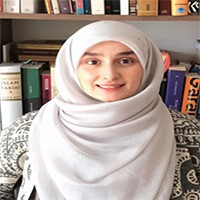

Ayşegül Gümrükçü Keskin is a lecturer at Bingöl University and a Ph.D. in Art student at Ankara Hacı Bayram Veli University. Her work focuses on graphic design, visual communication, and sustainable design. She applies design-based research to connect sustainability, technology, and design, and takes part in national and international collaborations, contributing to knowledge in design, sustainability, and communication.

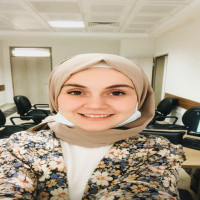
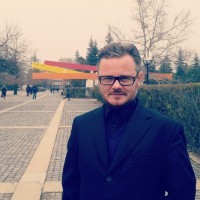
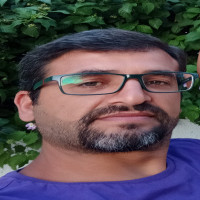




 Web
Web








 Web
Web




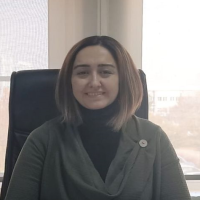
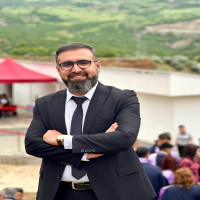
Kadri Kınık, Lisans eğitimini 2016 yılında Bingöl Üniversitesi Sosyal Hizmet bölümünde tamamladı. Yüksek lisans eğitimini 2019 yılında Yalova Üniversitesi Sosyal Hizmet Anabilim Dalı’nda “Kültüre Duyarlı Sosyal Hizmet Bağlamında Türkiye’de Koruyucu Aile Modeli: İstanbul ve Bingöl Örneği” adlı tez başlığıyla tamamladı. Doktora eğitimini ise 2025 yılında Yalova Üniversitesi Sosyal Hizmet Anabilim Dalı’nda Aile Danışmanlığı Hizmeti Alan Bireylerin Yakınlık İlişkileri ve Evlilik Doyumunun Karma Yöntemle Araştırılması adlı tez başlığıyla tamamladı. 2018 yılında Biruni Üniversitesinde Aile Danışmanlığı ve Oyun Terapisi eğitimi ve süpervizyonu aldı. İrem Bray Eğitim ve Danışmanlığının gerçekleştirdiği “Değişime Hazır mısınız?” Çift ve Aile Terapisi Atölye Çalışmasında süpervizyon eğitimini aldı. Çeşitli üniversitelerde aile ile ilgili bildiriler sundu. Aile ilgili çeşitli alanlarda araştırmaları devam etmektedir. Halihazırda Munzur Üniversitesi Sosyal Hizmet ve Danışmanlık Bölümü Bölüm Başkanı olarak Öğr. Gör. Dr. unvanıyla görevini sürdürmektedir.


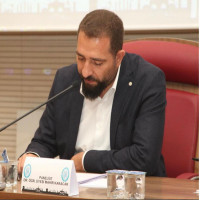
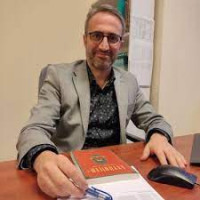

Mahsum AVCI CV
2005 yılında Atatürk Üniversitesi Eğitim Fakültesi Psikolojik Danışma ve Rehberlik Anabilim Dalı lisans eğitimini tamamlamıştır. Mezuniyetini hemen ardından Ankara’da bir özel eğitim kurumunda (Rehabilitasyon Merkezi) çalıştı. 2006- 2017 yılları arasında Milli Eğitim Bakanlığına bağlı lise ve Rehberlik araştırma merkezlerinde ( RAM) Psikolojik Danışman olarak çalışmıştır. 2016 yılında Atatürk Üniversitesi Eğitim Fakültesi Psikolojik Danışma ve Rehberlik Anabilim Dalında “Lise öğrencilerinin kişilerarası problem çözme becerilerinin sosyometrik statülerine göre incelenmesi” konulu tezi ile Yüksek Lisans eğitimini tamamlamıştır. Rehberlik Araştırma Merkezi Müdürlüğünde çalıştığı süre içinde idareci, öğretmen ve ailelere Psikoeğitim Eğitici Eğitimi, Bağımlılıkla Mücadele, Özel Eğitim Formatörlük, 0-18 yaş aile eğitimi ve İletişim Becerileri Eğitimcilerin Eğitimi Kurslarını vermiştir. Doktora öğrenimi boyunca Doç. Dr. Taşkın Yıldırım’dan Dinamik Yönelimli Kısa-Yoğun-Acil Psikoterapi Eğitimini usta-çırak ilişkisi içerinde almıştır. Ayrıca Prof. Dr. Ebru Şalcıoğlu’ndan Bilişsel Davranışçı Eğitiminin yanı sıra farklı kurumlardan Psikolojik Testler (Objektif ve Projektif), EMDR ( Temel, İleri ve Çocuk), Dr. Manfield’en temel ve ileri düzey Flash Emdr tekniği, Kısa Süreli Çözüm Odaklı Terapi eğitimini almıştır. Avcı; çeşitli kurumlar tarafından desteklenen ‘Travmatik Yasantılarda Psikolojik İlk Yardım ve Kriz Olaylarına Müdahale Eğitici Eğitimi’, ‘Psikolojik Travma, Yas Tedavisi, İstismar mağduru bireylerle EMDR projesi’ ve ‘Zekâ Oyunları Eğitici Eğitimi Projelerini’ yazmış ve yürütmüştür. 2021 yılında İnönü Üniversitesi Eğitim Bilimleri Enstitüsünde ‘‘Objektif ve Projektif Testler Bağlamında Travmatik Yas Yaşayan ile Yaşamayan Üniversite Öğrencilerinin Ruhsal Süreçlerinin İncelenmesi’’ konulu teziyle doktora eğitimini tamamlamıştır. 2018 yılında Bingöl üniversitesine Öğretim Görevlisi olarak atanmıştır. O tarihten bugüne aynı üniversitenin Fen Edebiyat Fakültesi Psikoloji ve Sosyal Hizmet Bölümlerinde Çocuk ve Ergen Psikopatolojisi, Psikolojik Testler, Yetişkinlik, Yaşlılık ve Ölüm Psikolojisi, Kısa Dinamik Terapi, Aile Danışmanlığı ve Terapisi, Anormal Psikolojisi I ve II, Psikolojiye Giriş, Kriz ve Krize Müdahale, Sosyal Psikoloji, Sosyal Hizmet Müdahalesi II, Sosyal Hizmet Müdahalesi I, Tıbbi ve Psikiyatrik Sosyal Hizmet ve Sosyal Hizmette Görüşme Teknikleri derslerini vermiştir. Psikolojik Danışman olan Avcı; travmatik yas, yas, rüya analizi, rüyaların psikoterapide kullanılması, projektif teknikler, kişilik özellikleri, ruhsal belirtiler ve intihar alanlarında bilimsel çalışmalar yapmaktadır.


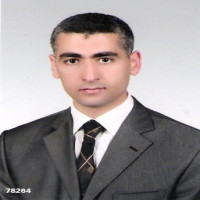
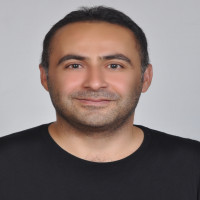
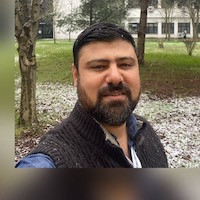
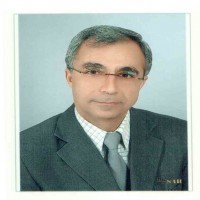
Assoc. Prof. Dr, Mardin Artuklu University, Kurdish Language and Culture Department
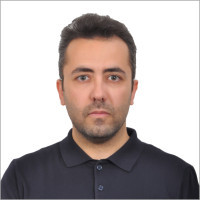
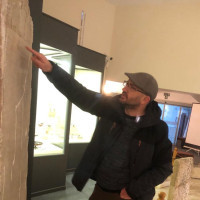






Yazar Ekinci 1985 yılında Mersin’de doğdu. İlk, orta ve lise öğrenimini Mersin’de tamamlamıştır. 2008 yılında Atatürk Üniversitesi Kazım Karabekir Eğitim Fakültesi Rehberlik ve Psikolojik Danışmanlık Anabilim Dalı’ndan mezun olmuştur. 2013 yılında Necmettin Erbakan Üniversitesi Rehberlik ve Psikolojik Danışmanlık Anabilim Dalı’nda bilim uzmanlığı, 2019 yılında ise doktora derecesini, Mart 2024 yılında doçent unvanını almıştır. 2008 ile 2017 yılları arasında Adana ve Konya’da Millî Eğitim Bakanlığı’na bağlı ilk ve orta eğitim kurumlarında okul psikolojik danışmanı olarak görev yaptı. 2013 yılında TFF Futbol Psikolojik Performans Danışmanlığı lisansını aldı. 2013 ile 2018 yıllarında futbol Konyaspor Futbol Kulübünde futbol psikolojik performans danışmanlığı yaptı. 2017 ile 2021 yılları arasında Karamanoğlu Mehmetbey Üniversitesi Kazım Karabekir Meslek Yüksek Okulu’nda Sosyal Hizmetler bölümünde öğretim görevlisi olarak çalıştı. 2021 yılından itibaren Karamanoğlu Mehmetbey Üniversitesi Eğitim Fakültesi Rehberlik ve Psikolojik Danışmanlık Anabilim Dalı’nda öğretim üyesi olarak çalışmalarını sürdürmektedir. Yazar evli ve iki çocuk sahibidir.
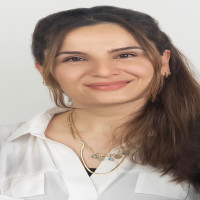
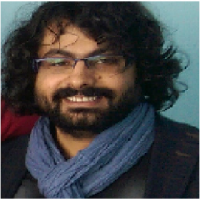

Prof. Dr. Oğuz Tekin, Koç Üniversitesi Arkeoloji ve Sanat Tarihi Bölümü öğretim üyesi ve aynı zamanda Suna & İnan Kıraç Akdeniz Medeniyetleri Araştırma Merkezi Direktörü’dür. Türkiye’deki müze ve özel koleksiyonlardaki sikkeler ile ticari ağırlıkların yayımlanmasını amaçlayan Sylloge Nummorum Graecorum Türkiye ve Corpus Ponderum Antiquorum et Islamicorum projelerinin de direktörü olan Tekin’in bu alanlarda yayımlanmış çok sayıda çalışması bulunmaktadır.
Pınar Seden MERAL, yüksek lisans ve doktora eğitimini Marmara Üniversitesi İletişim Fakültesi'nde tamamladı. Üniversiteden mezun olduktan sonra çeşitli özel eğitim kurumları, çeviri büroları ve yayın kuruluşlarında İtalyanca öğretmeni, çevirmen ve editör olarak çalıştı. Meral, 2002 yılında Kadir Has Üniversitesi İletişim Fakültesi'nin kuruluşunda araştırma görevlisi olarak yer aldı ve uzun yıllar orada çalıştı. 2009 yılında Beykoz Lojistik Meslek Yüksekokulu'nda Halkla İlişkiler ve Tanıtım Program Başkanı olarak çalışmaya başladı. Kurumunda birçok idari ve akademik görevde bulunan Pınar Seden Meral, Sanat ve Tasarım Fakültesi Dekan Yardımcısı, İletişim ve Tasarım Bölüm Başkanı, Beykoz Üniversitesi Yönetim Kurulu Üyesi, Beykoz Üniversitesi Senato Üyesi, Beykoz Üniversitesi Sanat ve Tasarım Fakültesi Yönetim Kurulu Üyesi, Beykoz Üniversitesi Etik Kurul Üyesi, Lisansüstü Programlar Enstitüsü Müdür Yardımcısı ve 2016 yılında Beykoz Üniversitesi'nin kurulmasıyla birlikte İletişim Tasarımı ve Semiyotik Anabilim Dalı Başkanı gibi görevler üstlenmiştir. Başlıca çalışma alanları arasında marka tasarımı, marka yönetimi, reklamcılık ve kurumsal kimlik yer almaktadır. Meral ayrıca etkili iletişim ve beden dili konusunda sertifika eğitimleri vermektedir. Çok sayıda makale ve kitap bölümü yayınlanmış olan Pınar Seden Meral, akademik ve idari görevlerini sürdürmektedir.
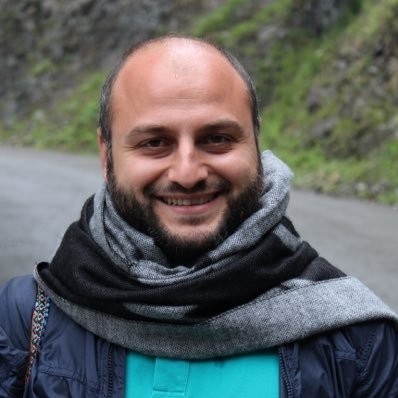
He was born in 1990 in Istanbul. He graduated from Kartal Anatolian Imam Hatip High School in 2008 and from Marmara University, Faculty of Theology in 2012. He worked as a research assistant at Van Yuzuncu Yil University, Faculty of Theology between 2012-2017 and at Izmir Katip Çelebi University, Faculty of Islamic Sciences, Department of Hadith between 2017-2020. He completed his MA in 2014 with his thesis titled The Use of Hadith in Shia Tafsir -The Example of Al-Ayyashi Tafsir- and his PhD in 2019 with his thesis titled The Effect of Geography and Culture on Hadith Narration during the Period of the Companions. He currently works as a faculty member at Balıkesir University, Faculty of Theology, Department of Hadith.
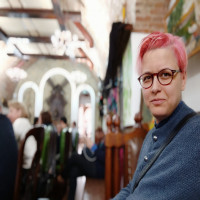
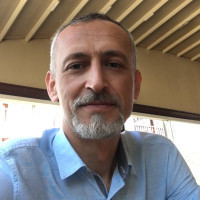



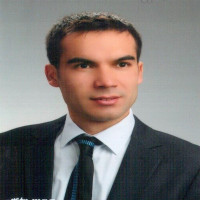
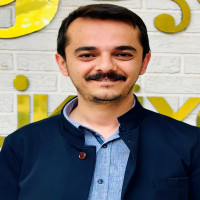





 Web
Web
Siyer, siyer yazıcılığı, meğazi, Endülüs, Kültür Tarihi, Biyografi
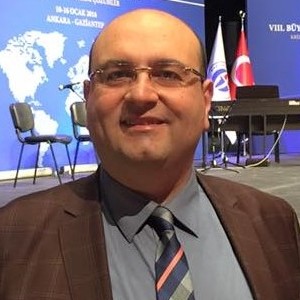
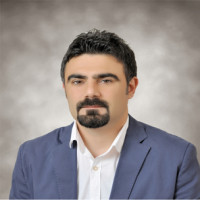
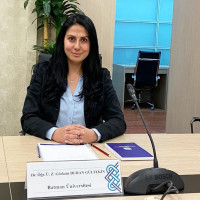
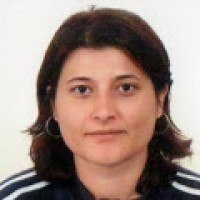
 Web
Web




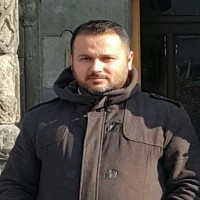
Ortadoğu'da etnik ve dini grupları çalışır. Seküler ve İslamcı grupları çalışmakla birlikte özel olarak Irak'taki Seküler ve İslamcı Kürt gruplar çalışmaları içinde yer alır.
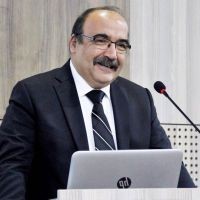

Aim & Scope
BUSBED published its first issue in the spring of 2011 as a nationally recognized journal published twice a year, both spring and autumn. It was established to present the works in all fields of Social and Human Sciences, which are original, unpublished, never sent to any other publication to be presented, such as articles, book reviews, translations, editing and symposium reviews to the science world.
This international peer-reviewed journal is published at least as two issues in a year.
Original articles written in Turkish, Arabic or English in the area of social sciences are published in this journal. Articles are published after being approved by the editorial and advisory boards.
Academic articles produced in the following areas are published in BUSBED.
Economics, Sociology, Political Science, Business, History, Turkish Language and Literature, Turkish Language Teaching, Philosophy, Geography, Educational Sciences, Law, Art History, Archeology, Communication Sciences, Linguistics, Music, Fine Arts, Tourism, International Relations, Finance , International Trade and Finance, Public Administration, Labor Economics, Theology.
Author Guidelines
Yayın İlkeleri ve Yazım Kuralları
The Principles of the Publication and Writing Rules
مبادئ النشر- قواعد كتابة الـمقالة
BUSBED is an international academic journal published by Bingöl University Social Sciences Institute. Spring (April) and fall (October) period is published as 2 issues per year. Original articles written in Turkish, Arabic or English in the area of social sciences are published in this journal. Articles are published after being approved by the editorial and advisory boards.
Deadline for article acceptance: end of November for Spring Semester, end of May for Fall Semester.
We consider for publication in journal published articles which:
Report original science, and add significantly to research already publishedare of interest to the community are scientifically rigorous have sound motivation and purpose have not been published previously in the peer-reviewed literature, including in another language are not under consideration for publication in any other peer-reviewed journal or book available through a library or by purchase.
Articles reporting work that was originally presented at a conference may be submitted, provided these articles do not appear in substantially the same form in a peer-reviewed, published conference proceeding. Again, authors should take care to ensure the format of a research paper is used. The article length should also be appropriate to the content. In case of doubt, please enquire with the journal.
All articles are judged solely on their scientific merits. Unbiased consideration is given to all manuscripts offered for publication regardless of whether or not the authors request publication on an open access basis and regardless of the race, gender, religious belief, ethnic origin, citizenship, political philosophy, sexual orientation, age or reputation of the authors.
The APA reference style is used in the articles.
The article, must be adapted to journal writing rules before submission. Click here for the writing rules.
SIGNIFICANT GUIDELINES THAT PREVENT THE ARTICLES TO BE PUBLISHED
- The article will not be considered and published,
- If the board of editors don’t approve it,
- If author participation and record information are not sufficient,
- If it has no author ORCID revise number,
- If it is not prepared according to the writing rules of the journal,
- If it has more than two authors,
- If it has no abstract either in Turkish or English (Arabic according to the state), or has non-uniform abstract,
- If classic footnote system is used without force majeure,
- If it is the second article of the author within one year except from the special decide of the board of editors,
- If the name of the author is written in any part of the page or file,
- If, in pre-examination, it is not to be enough to be published in terms of content, format, resource, evaluation, method, language and etc.
- If it is less than 8 and more than 20 pages except from the special decide of the board of editors,
- If its evaluation period cannot be completed till the inception of the printing and publishing process of the journal,
- If it is sent after the end of the maximum capacity of the related issue of the journal.
Ethical Principles and Publication Policy
The Journal of Bingöl University’s Institute of Social Sciences promotes the unbiased distribution of knowledge, and expects authors, readers, researchers, publishers, referees and editors to follow certain codes of conduct during the publication process. Individuals must follow general as well as specific codes of conduct and responsibility in accordance with the open access guide published by the Committee on Publication Ethics (COPE) found below.
1. General practices in violation of scientific research and publication ethics:
a) Plagiarism: Presenting others’ ideas, methods, data, applications, writing, figures and works partially or completely as one’s own work without proper source reference.
b) Forgery: Producing data which is not supported by research; regulating or changing presented or published works through the insertion of false data; reporting or publishing such works; or holding incomplete research to be complete.
c) Distortion: Distorting research records and obtained data; pretending to use methods, devices and materials that were not actually used; evaluating data unsuitable to the research itself;, distorting data or results in order to adapt them to established theories or hypotheses; distorting or altering research results to promote or confirm the interests of the sponsoring person or foundation.
d) Repeated publishing: Submitting more than one work of research consisting of the same results in order to obtain associate professorship, examination review, or academic promotion.
e) Slicing: Destroying the integrity of the results of research by slicing it improperly and submitting fragments as specific assessments to gain academic promotion.
e) Unfair authorship: Adding persons who have not actively contributed to the production of the article or failing to add persons who actually did contribute; altering the arrangement of authors’ names improperly and unjustifiably; subtracting the names of actively contributing writers during the publication process or subsequent printings; or adding the name of an author who did not contribute as a way of gaining prestige.
f) Other ethical violations: Failure to indicate clearly the persons, institutions, and foundations that supported the publication of the research; failure to follow ethical rules while experimenting on animals and humans; failure to respect the rights of patients in publications; sharing information of a study for which you were appointed as referee prior to its publication; the misuse of sources, spaces, facilities, and apparatus provided for the research; or accusing someone intentionally and baselessly of ethical violations (Provided by the YÖK Scientific Research and Publication Codes of Conduct, Article Number 8)
2. The Responsibilities of Authors, Referees, and Editors:
Authors’ Responsibilities:
• The author must guarantee the authenticity and originality of the data used in the article.
• The author must make necessary revisions asked for by the referee, including the revision of doubtful data and conclusions, errors, and possible instances of plagiarism. If the author fails to make such revisions, he or she must state reasons for doing so.
• Works cited pages must comply to the formatting rules of the journal.
• All work must be free of plagiarism and false data.
• The author is not to publish the research in more than one journal.
Referees’ Responsibilities:
Our administrators shall carry out the refereeing process in conformity with all publishing regulations. Cases of plagiarism, repeated publications, errors, and doubtful content will be forwarded to sbe.dergi@bingol.edu.tr, and the referee will be notified. The referee must follow up and report on any data and results related to the inquiry. Our journal anticipates that referees will comply with the following principles:
• Assessments have to be done neutrally.
• There must be no conflicts of interest between referees and authors.
• The referee must indicate deficiencies in terms of work, attribution, rules etc., related to the article.
• Articles evaluated blindly shouldn’t be made public.
Editors’ Responsibilities:
• Editors have the right to accept or decline articles. They have to use this responsibility in a timely way that conforms with publishing schedules.
• Editors should avoid conflicts of interest in accepting or declining articles.
• Editors should only accept articles that are original and contribute to the field of research.
• Editors should refuse articles which are in error, deficient, or violate the rules, requirements, or editorial policy of the journal.
• Editors should enable authors to make corrections to their work after receiving requests for revision (thus enabling publication) or to withdraw their articles before or after any requests for revision are made.
• The editors will ensure that articles will be assessed by at least two referees according to the double-blind peer review system and to keep the identites of those referees confidential.
• Editors will work with “Turnitin” plagiarism software to determine if articles and authentic and original.
Plagiarism Policy
Each review sent to our journal is scanned in a plagiarism program called Turnitin. It is essential that the editors, referees and authors comply with the international punbication ethical rules and article writing rules.
Price Policy
Dergimizin hiçbir sürecinde ücret alınmamaktadır.
Indexes
Journal Boards
Auto-generated board - Please Edit This Title
Doç. Dr. Nebi BUTASIM
Editors

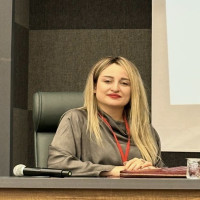
Dr. Öğr. Üyesi
Fırat Üniversitesi İnsan ve Toplum Bilimleri Fakültesi Tarih Bölümü
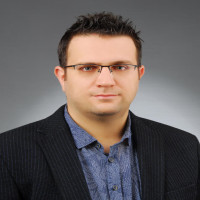


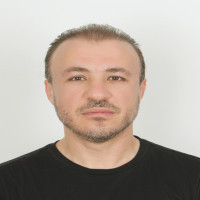

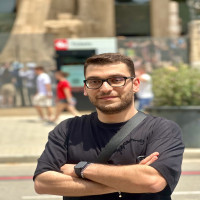
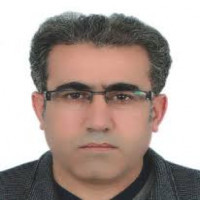
Farsça
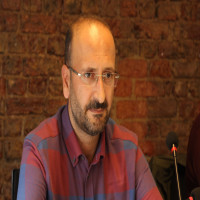
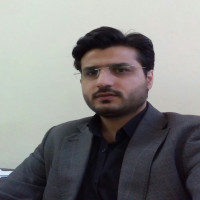

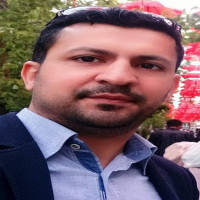
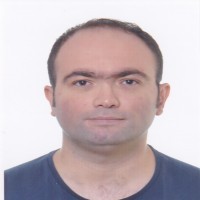
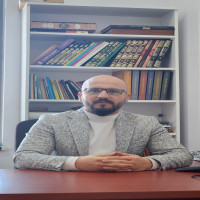
Teknik Editör / Technical Editor

Dil Editörü (Türkçe)
Yabancı Dil Editörü (İngilizce)

Redaktor


Yayın Kurulu / Editorial Board
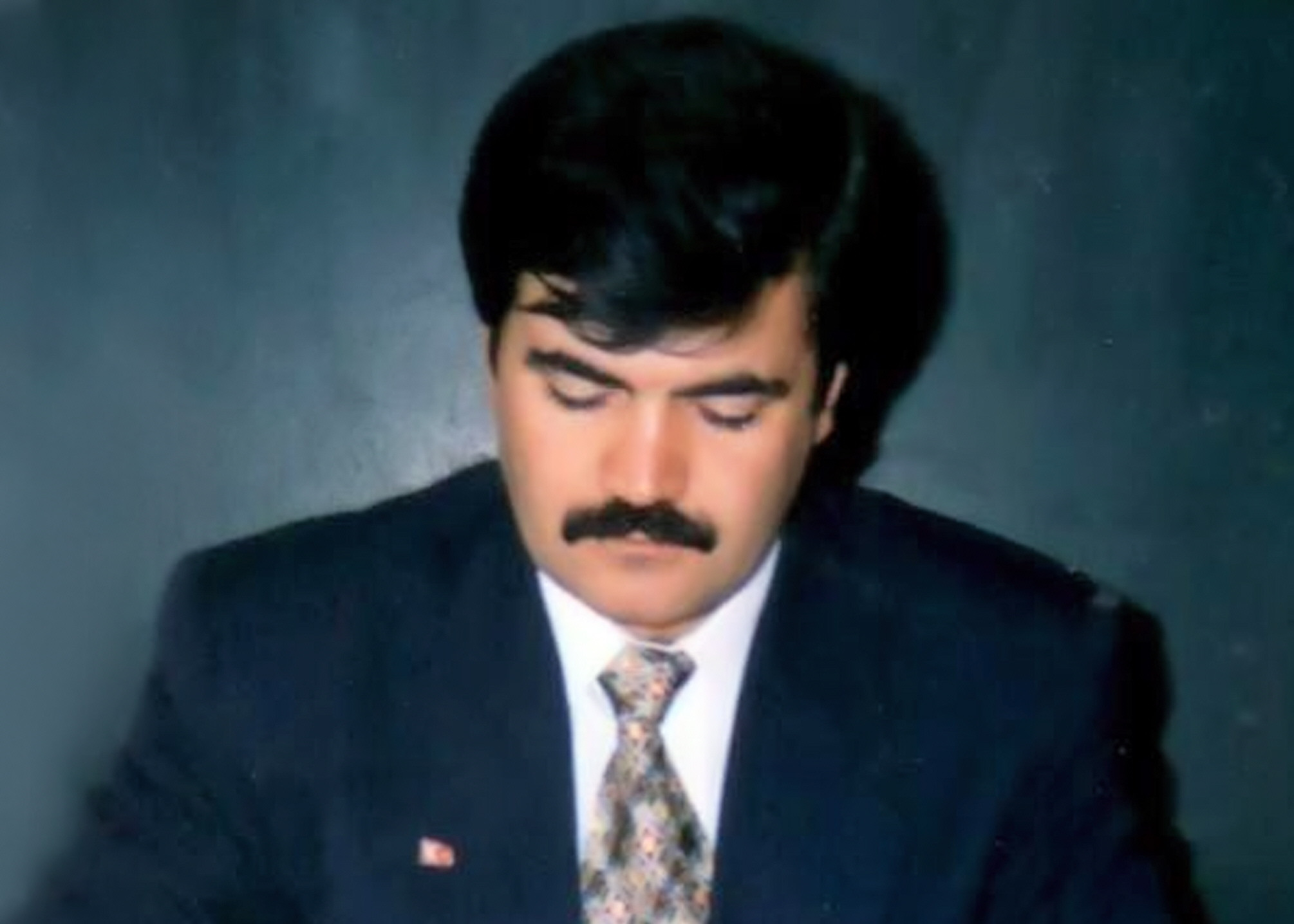
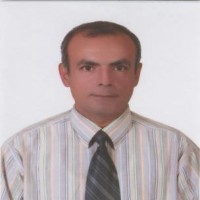

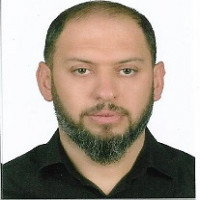
1997 yılında Sivas İmam-Hatip Lisesi, 2002 yılında Atatürk Üniversitesi İlahiyat Fakültesi ve 2021 yılında Anadolu Üniversitesi Felsefe Bölümü’nden mezun oldu. 2009 yılında yüksek lisansını, 2017 yılında doktora eğitimini tamamladı. 2012 yılında Bingöl Üniversitesi İlahiyat Fakültesi Felsefe Tarihi Anabilim Dalı’na araştırma görevlisi olarak atandı. Aynı anabilim dalında 2018 yılında Dr. Öğr. Üyesi, 2024 yılında ise doçent oldu. 2018 yılından itibaren Felsefe ve Din Bilimleri Bölüm başkanlığı yapan yazar, bir süre senato üyeliği ve dekan yardımcılığı görevlerinde bulundu. Aristoteles ve Kınalızâde Ali’de Ahlak ve Bir Erdemin Doğuşu: Antik Yunan Felsefesinde Adalet başlıklı iki kitabı bulunan yazarın temel ilgi alanları; ilk çağ, orta çağ ve ahlak felsefesi başta olmak üzere bilgi ve varlık felsefesidir.
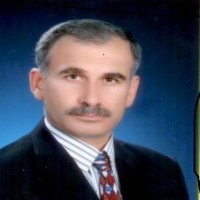
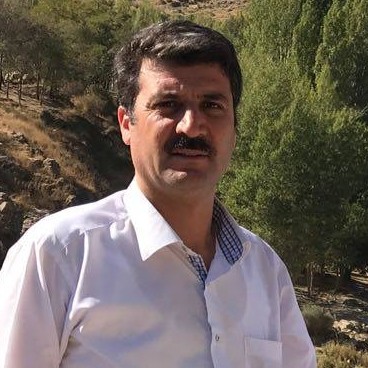
Prof. Dr., Mardin Artuklu University, Kurdish Language and Literature Department
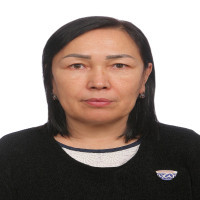

Arapça, Farsça, İngilizce
Danışma Kurulu / Advisory Board

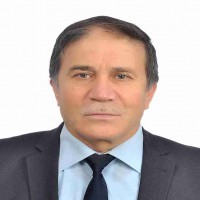
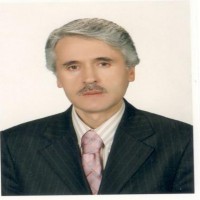
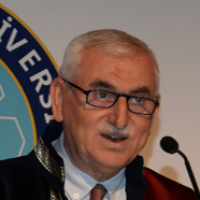
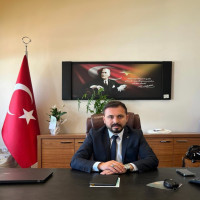
2004 yılında Fırat Üniversitesi’nin Türk Dili ve Edebiyatı Bölümü Yeni Türk Edebiyatı Anabilim Dalı’nda yüksek lisans öğrenimine başladı. Yine aynı yıl Yeni Türk Edebiyatı Anabilim Dalı’na Araştırma Görevlisi olarak atandı. 2006 yılında “Tahsin Yücel’in Öyküleri Üzerine Bir İnceleme” adlı çalışmasıyla yüksek lisansını tamamladı. 2006 yılında Fırat Üniversitesi, Türk Dili Edebiyatı, Yeni Türk Edebiyatı Anabilim Dalı’nda doktoraya başladı. “Halide Edib Adıvar’ın Romanlarında Yapı ve İzlek” isimli doktora tezini 2010 yılında tamamlayarak, 2012 yılında Yrd. Doç. Dr., 2018 yılında doçent, 2023 yılında ise Yeni Türk Edebiyatı Bilim Dalı'nda Profesör oldu.
Yazar, Türk Dili, Türk Dünyası, Belleten, bilig, Folklor/Edebiyat, Türk Kültürü, Türk Dünyası, Erdem, Arayışlar, E-Journal of New World Sciences Academy, Fırat Üniversitesi Sosyal Bilimler Enstitüsü Dergisi, Bingöl, Üniversitesi Sosyal Bilimler Enstitüsü Dergisi, Karaman Üniversitesi Sosyal Bilimler Enstitüsü Dergisi, Turkish Studies, JASS, Hacettepe Üniversitesi Türkiyat Araştırmaları Dergisi, Siirt Üniversitesi Sosyal Bilimleri Dergisi, Journal of Turkısh Language and Literature, Mecmua, Researcher: Social Science Studies, International Journal of Language Academy, Varlık, Ada, Roman Kahramanları, Telmih vb. dergilerde çalışmalar yayımlandı.
Prof. Dr. Veysel ŞAHİN'in Akçağ Yayınevi tarafından okuyucusuyla buluşturulan bilimsel kitapları ise Bilge Kadının Aynadaki Yüzü (Halide Edib Adıvar’ın Romanlarında Yapı ve İzlek), (2014), “Tahsin Yücel ve Aykırı Öykülem” (2017), “Turgut Uyar’ın Şiirlerinde “Ben ve Öteki”nin Görüntü Düzeyleri” (2017), Necip Fazıl Kısakürek’in Şiirlerinde Kronotopsal İmgelem (Zamanın İçinde Mekan/Mekanın İçinde Zaman)” (2023)’dır. Ayrıca yine Akçağ Yayınevi tarafından basılan ve Aysuda Şahin ile “Epik Dünyanın Kurmaca Mitosu Dede Korkut Anlatıları (2019)” adlı çalışması da mevcuttur.
ŞAHİN Kitap bölümü ve editör olarak; “(2017), Romanda Mekân, (Romanda Mekân Poetigi ve Çözümlemeler), Akçağ Yayınları, Ankara.”, “(2018), Romanda Kişiler Dünyası, (Roman Karakterlerinin Doğası Üzerine İncelemeler…), Akçağ Yayınları, Ankara.”, “(2020), Romanda Bakış Acısı ve Anlatıcı Düzlemi, Akçağ Yayınları, Ankara.”, “(2021), Romanda Zaman, (Romanda Zaman Poetigi Üzerine…) Akçağ Yayınları, Ankara.” ve “(2022), Edebiyat Kuramı ve Eleştiri (Kuram-Kavram-Kapsam-Yöntem-Uygulama), Akçağ Yayınları, Ankara.” adlı çok çeşitli akademik çalışmalara imza attı.
2020 yılından itibaren “Turkish Academic Studies-TURAS” adlı uluslararası hakemli dergiyi çıkarmaya başlayan Prof. Dr. Veysel ŞAHİN, halen Fırat Üniversitesi Türk Dili ve Edebiyatı Bölümü Yeni Türk Edebiyatı Anabilim Dalı’nda öğretim üyesi olarak görev yapmaktadır. Yazar evli olup iki çocuk babasıdır.
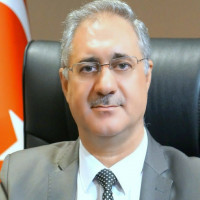


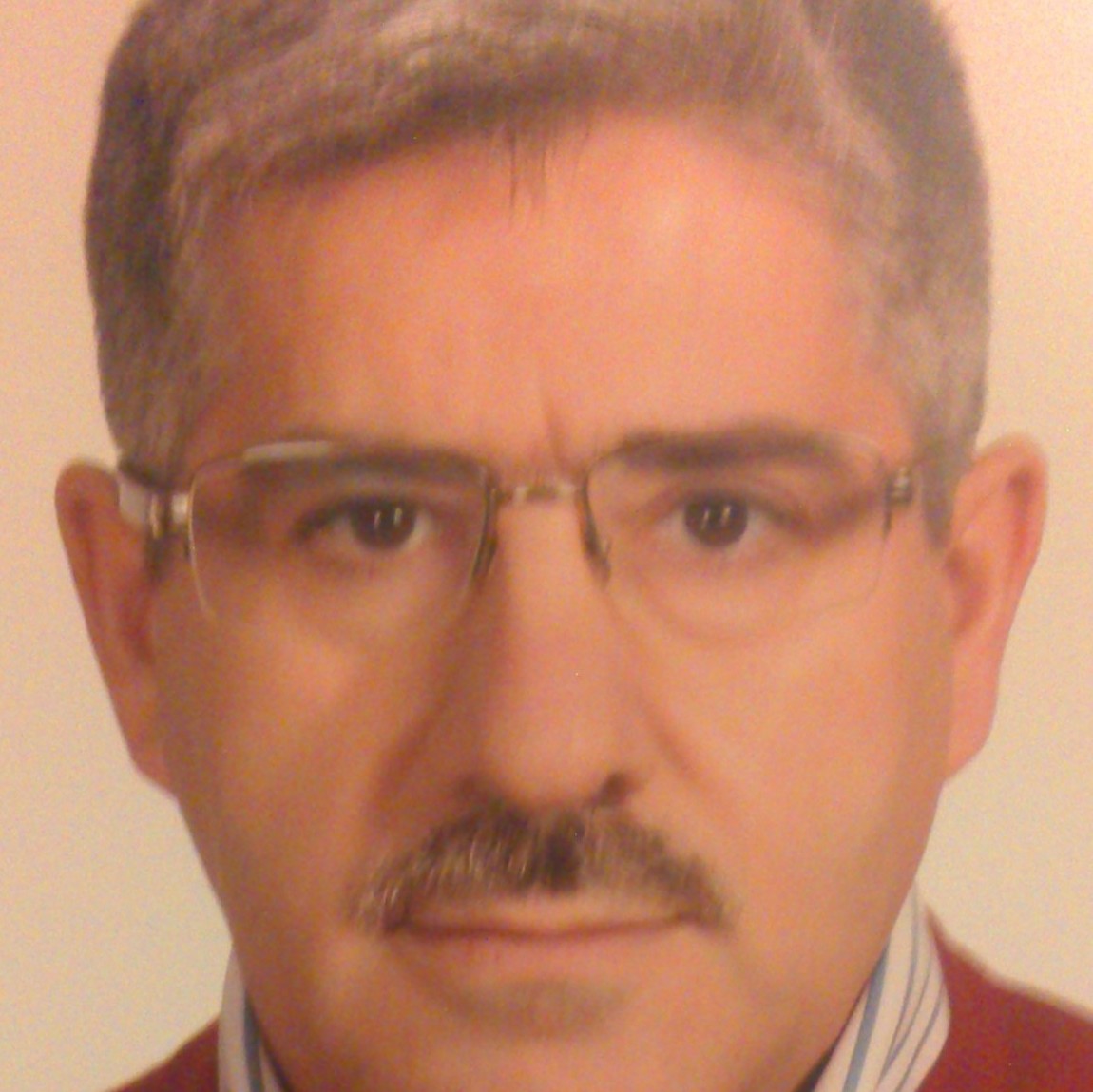

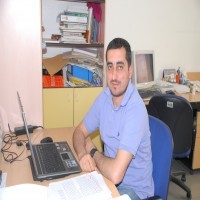


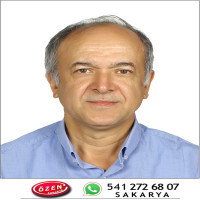
İngilizce

Prof. Dr., Mardin Artuklu University, Kurdish Language and Literature Department
Любов Співак
Доктор психологічних наук, професор, професор кафедри психології Бердянського державного педагогічного університету, Запоріжжя, Україна.
Наукові інтереси: ефективність дистанційного навчання студентів-психологів, розвиток національної та професійної самосвідомості студентів.

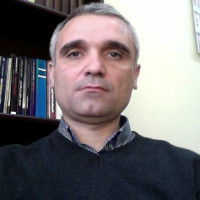
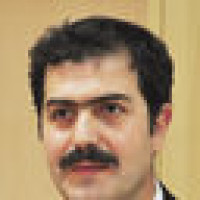

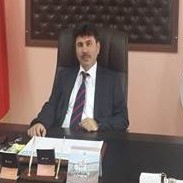
Auto-generated board - Please Edit This Title





Farsça


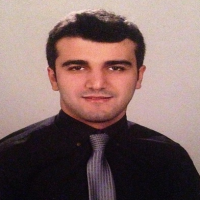




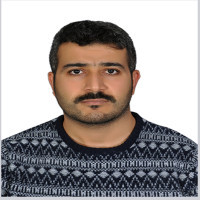

Dr. Öğr. Üyesi
Fırat Üniversitesi İnsan ve Toplum Bilimleri Fakültesi Tarih Bölümü


